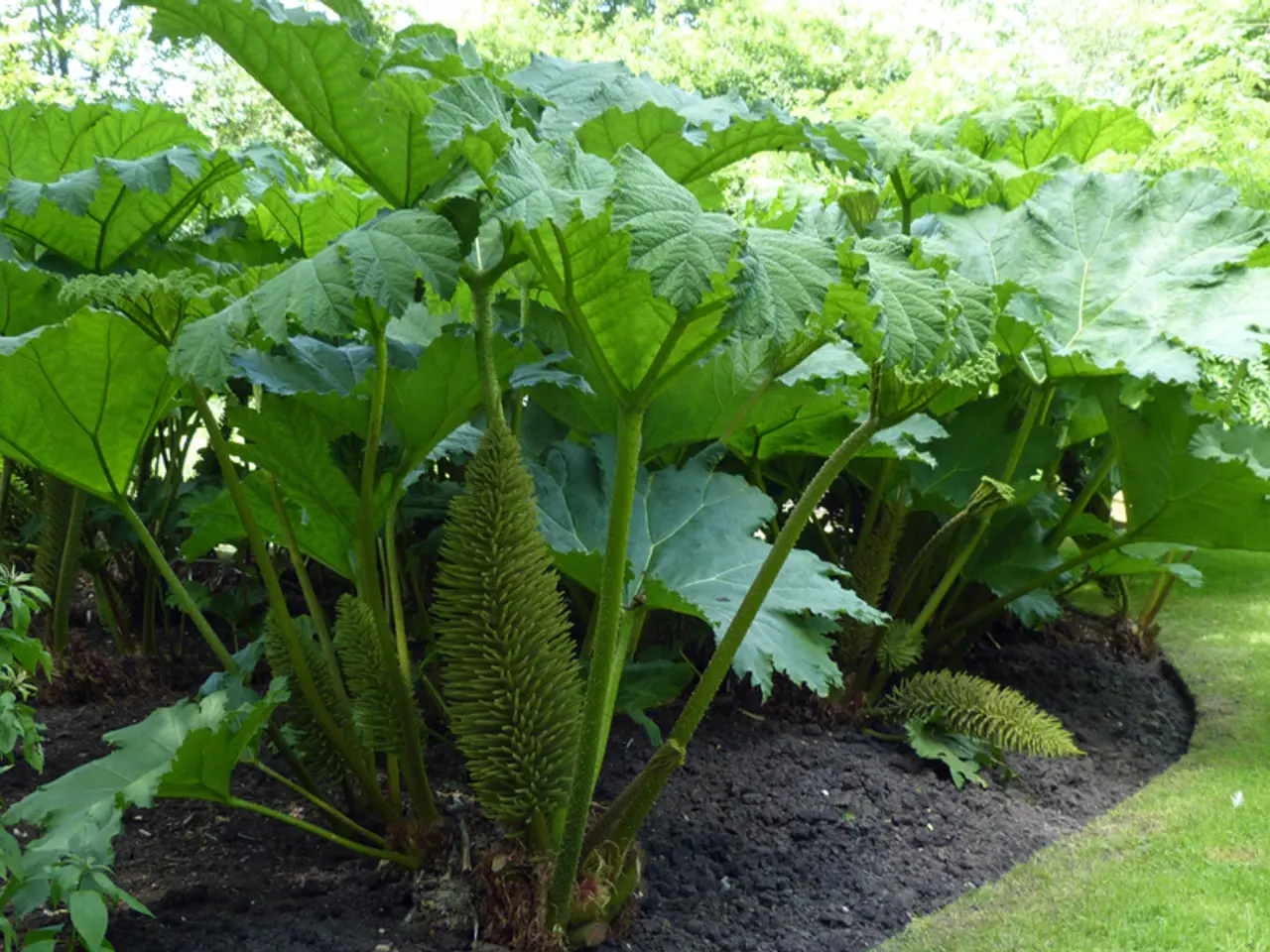Organic and Chemical Fertilizers: A Comparative Analysis of Advantages and Disadvantages
================================================================
In the world of gardening, the choice between organic and chemical fertilizers can often be a contentious one. Both types have their pros and cons, and understanding these differences can help gardeners make informed decisions.
Organic Fertilizers: Sustainable and Eco-Friendly
Organic fertilizers, such as those made through composting or purchased from local sources like dairy farms, are a popular choice among environmentally-conscious gardeners. They are eco-friendly, sustainable, and renewable, posing no threat to water or soil pollution.
One of the key advantages of organic fertilizers is their slow nutrient release, which reduces the risk of fertilizer burns and allows plants to absorb all needed nutrients without over-fertilization. Organic fertilizers improve soil structure, enhancing its ability to retain water and nutrients.
However, organic fertilizers have a lower concentration of nutrients and require more time for the microorganisms to break down the nutrients. This means that their effects may not be immediately noticeable, and they may not be as effective in cold or dry soil.
Chemical Fertilizers: Quick Results, Potential Risks
Chemical (inorganic) fertilizers provide rapid and precise nutrient delivery, making them effective for quickly repairing plant stress or nutrient deficiency. They are conveniently available in various formats, including granules, liquids, and soluble forms.
However, the convenience of chemical fertilizers comes with potential risks. Overuse can lead to toxic buildup and alter the soil's pH permanently. Chemical fertilizers can also disrupt soil pH and microbiota, and they are not eco-friendly, as they can cause water pollution.
Chemical fertilizers are often more affordable and widely accessible than organic alternatives. However, their high nutrient concentration can lead to over-fertilization and plant burns. They are made from refined fertilizer substances along with chemical fillers, and they contain toxic compounds and acids that could affect plant growth.
Balancing Act
Gardeners often find a balance between organic and chemical fertilizers, depending on their immediate plant needs and long-term soil stewardship. Organic fertilizers are ideal for promoting sustainable soil health, while chemical fertilizers can provide quick nutrient boosts when needed.
By understanding the pros and cons of each type of fertilizer, gardeners can make informed decisions that promote healthy plants, sustainable gardening practices, and a healthier environment.
References
[1] National Gardening Association. (2021). Organic vs. Synthetic Fertilizers. [online] Available at: https://www.garden.org/learn/articles/view/3379/
[2] University of California Agriculture and Natural Resources. (2021). Organic Fertilizers. [online] Available at: https://ucanr.edu/sites/sustainableagriculture/files/312780.pdf
[3] The Spruce. (2021). Organic vs. Chemical Fertilizers: Which is Better for Your Garden? [online] Available at: https://www.thespruce.com/organic-vs-chemical-fertilizers-2132812
[5] Environmental Protection Agency. (2021). Nutrient Pollution. [online] Available at: https://www.epa.gov/nutrient-policy-data/nutrient-pollution
In the realm of home-and-garden activities, organic fertilizers, often used in gardening, are renowned for their eco-friendly and sustainable qualities, making them a popular choice among those who value a sustainable lifestyle. On the other hand, chemical fertilizers offer quick results but may pose potential risks to the soil and environment, particularly in terms of water pollution.




